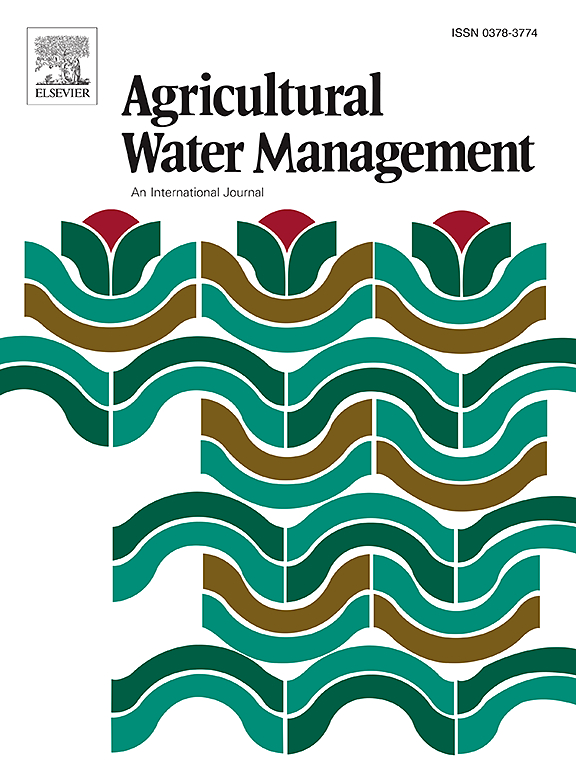Climate change and irrigation management shape crop resilience in UAE arid agriculture: APSIM model-driven assessment
IF 6.5
1区 农林科学
Q1 AGRONOMY
引用次数: 0
Abstract
Climate change has intensified challenges to food security, compelling the United Arab Emirates (UAE) government to allocate significant resources and advanced technologies for assessing cropping systems performances across country. Crop modeling has emerged as cutting-edge tools for analyzing crop management and assessing water-soil resources usage and sustainability. This study applied a process-based crop model to evaluate performances of three annual crops—wheat, maize, and potato— under integrated climate change projections and irrigation management strategies within the UAE’s arid agroecosystems. APSIM-model was used to simulate crop eco-physiological responses, and assess their vulnerability–resilience profiles under combined climate-water stressors. Model calibration-validation processes were conducted using dataset encompassing crop phenological and productivity state variables. Time-series simulations were then performed under baseline-historical and future-projected period (1988–2100) defined by four Shared-Socioeconomic-Pathways (SSPs: 2.6–4.5–7.0–8.5). Results show that APSIM-model was successfully calibrated, and model validation further confirmed its robust accuracy in simulating crops development and yield prediction under the UAE’s agro-environmental conditions. Rising temperatures and water stress under medium–high emission scenarios (4.5–7.0–8.5) emerged as critical abiotic stressors, reducing wheat-yields up to half and maize-yields up to 75 %, and driving premature wheat and potato crop failure, particularly during the last two decades of the century. Leveraging APSIM-model for irrigation recommendations proved effective in ensuring maize efficient water-use, whereas it helps supporting appropriate potato scheduling across high-emissions scenarios. Findings highlighted the importance of investing in stress-tolerant crops and adapted varieties (e.g., C4 crops), alongside implementing UAE-specific soil–water management and climate-smart practices.
气候变化和灌溉管理对阿联酋干旱农业作物恢复力的影响:APSIM模型驱动的评估
气候变化加剧了对粮食安全的挑战,迫使阿拉伯联合酋长国(UAE)政府拨出大量资源和先进技术,用于评估全国各地的种植系统绩效。作物模型已经成为分析作物管理和评估水土资源利用和可持续性的前沿工具。本研究应用了一个基于过程的作物模型,在阿联酋干旱农业生态系统的综合气候变化预测和灌溉管理策略下,评估了小麦、玉米和马铃薯三种一年生作物的表现。采用apsim模型模拟作物在气候-水复合胁迫下的生态生理响应,评估作物的脆弱性-恢复力。模型校准-验证过程使用包含作物物候和生产力状态变量的数据集进行。然后在基线-历史和未来预测时期(1988-2100)下进行时间序列模拟,这四个共享的社会经济路径(ssp: 2.6-4.5-7.0-8.5)定义。结果表明,apsim模型标定成功,模型验证进一步证实了其在模拟阿联酋农业环境条件下作物发育和产量预测方面的稳健准确性。在中-高排放情景(4.5-7.0-8.5)下,气温上升和水分胁迫成为关键的非生物胁迫因素,使小麦产量减少一半,玉米产量减少75% %,并导致小麦和马铃薯作物早收,特别是在本世纪的最后20年。利用apsim模型提出灌溉建议已被证明在确保玉米高效用水方面是有效的,同时它有助于在高排放情景下支持适当的马铃薯调度。研究结果强调了投资于耐压作物和适应品种(如C4作物)的重要性,同时实施阿联酋特有的水土管理和气候智能型做法。
本文章由计算机程序翻译,如有差异,请以英文原文为准。
求助全文
约1分钟内获得全文
求助全文
来源期刊

Agricultural Water Management
农林科学-农艺学
CiteScore
12.10
自引率
14.90%
发文量
648
审稿时长
4.9 months
期刊介绍:
Agricultural Water Management publishes papers of international significance relating to the science, economics, and policy of agricultural water management. In all cases, manuscripts must address implications and provide insight regarding agricultural water management.
 求助内容:
求助内容: 应助结果提醒方式:
应助结果提醒方式:


